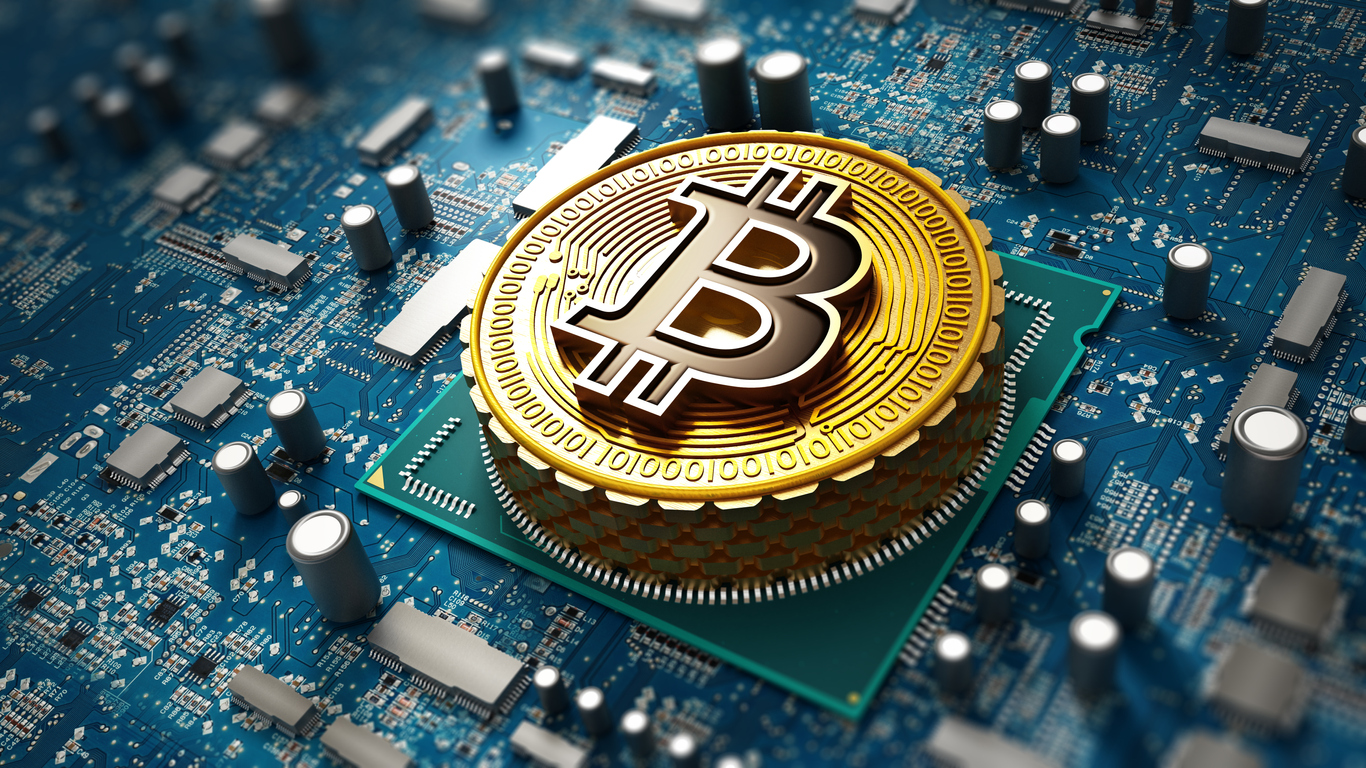
The spectacular rise in the value of Bitcoin is prompting more investors to get involved. But as with any investment, would-be investors need to delve a bit deeper into why these assets are attracting attention, as well as understanding the significant risks involved.
After a strong performance over the second half of 2020, global investment markets have been treading water for the last couple of months. In investors’ minds, a tug of war is developing between the much-anticipated post-coronavirus economic recovery and the need for central banks worldwide to keep financial conditions loose. The fear among investors is that inflation is poised to make a big comeback, and this has resulted in the share price of many of 2020’s biggest winners, technology stocks in particular, seeing bouts of profit-taking.
At the same time, Bitcoin seems to be going from strength to strength, raising speculation that the “Bitcoin bubble” shows no sign of bursting just yet. The value of an individual Bitcoin hit an all-time high of $57,489 on 21 February (around £41,000 in sterling), but how much a Bitcoin is worth by the time you read this is anyone’s guess. Bitcoin is an incredibly volatile asset, underlined by the fact that it was valued at just $9,668 (£7,462) on the same day last year.
Why has the value of Bitcoin risen so dramatically?
After many years of being treated with distrust and disdain by the financial world, Bitcoin is becoming an accepted part of the modern world. This year, major financial institutions such as BNY Mellon and Mastercard announced they would begin integrating Bitcoin into their payment systems. The reputation of the most well-known cryptocurrency was given another almighty boost after electric car manufacturer Tesla announced it had bought $1.5 billion of Bitcoin for its corporate treasury and would accept Bitcoin as payment for its cars. These announcements helped drive up the price of a single Bitcoin to record levels, and the value of Bitcoin has remained fairly strong even while equity market values have taken a hit.
The complication of Bitcoin is that it is not just a method of payment; it is also an asset class. So, somewhat unsurprisingly, the runaway rise of Bitcoin is leading to more talk of an asset ‘bubble’, drawing comparisons to the famous tulip mania of the 17th century. As with all asset bubbles, the value of the asset reaches unrealistic, even extraordinary, levels because people think it is going to be worth more tomorrow than they were prepared to pay for it today. Once that ‘FOMO’ (fear of missing out) dries up, the value comes crashing back down.
One of the biggest challenges around Bitcoin is that it is supposed to be considered as a valid currency, one that will soon become more mainstream, rather than as purely a speculative asset class or investment. But the volatility associated with Bitcoin makes it almost impossible to use as a currency. Nobody wants to be that unfortunate person who, in 2010, spent $30 worth of Bitcoin to buy a pizza, who would have been sitting on a $350 million fortune today if he had used cash instead.
Bitcoin is a huge energy drain
One of the biggest issues is that the process of mining Bitcoins consumes vast amounts of energy. This is because blockchain technology requires a vast network of computers and, as Bitcoin gets more valuable, the sheer effort expended on creating and maintaining it – as well as the amount of energy consumed – also increases. According to research from the University of Cambridge, Bitcoin uses more electricity annually than the whole of Argentina. Bitcoin’s annual total energy consumption is somewhere between 40 and 445 annualised terawatt-hours (TWh).
By comparison, here in the UK, our total electricity consumption is a little over 300 TWh a year. This also brings into question Tesla’s decision to back Bitcoin so heavily, and so publicly, as doing so appears to fly in the face of its environmentally green credentials.
So, taken in total, Bitcoin is a mass of contradictions. It is an investment that is highly volatile, a currency that you would be very fearful of spending, it is burning up fossil fuels at a very troubling rate, and its value is only whatever the market says it is on any given day. In other words, the value of Bitcoin appears to be maintained almost purely on speculation, meaning the bubble could burst any time.
An unregulated minefield
It is crucial to bear in mind that cryptocurrency is an unregulated investment. As with all high-risk, speculative investments, it is vital that investors fully understand what they are investing in, the risks associated with investing, and any regulatory protections that apply.
For crypto-asset-related investments, consumers are unlikely to have access to the Financial Ombudsman Service (FOS) or the Financial Services Compensation Scheme (FSCS) if something goes wrong, potentially leaving investors without recourse if an investment were to fail.
Furthermore, increased dangers of criminal activity have been associated with cryptocurrency, such as ransomware and other attacks, which appear to have increased during the Covid-19 pandemic.
Importance of diversification
When clients talk to us about Bitcoin, we always start by reminding them of the risks that we have outlined above. But it is also important to recognise that cryptocurrencies are a very new (and very volatile) asset class, and it is impossible to know where it could go from here.
Our suggestion is that if you are aware of the risks and the contradictions surrounding Bitcoin, and you still believe they are an asset that is worth holding, then only put in what you can absolutely afford to lose, bearing in mind that trends wear out and most bubbles do eventually burst.
If you are interested in discussing your investment portfolio with one of our experienced financial planners at FAS, please get in touch here.
This content is for information purposes only. It does not constitute investment advice or financial advice.





